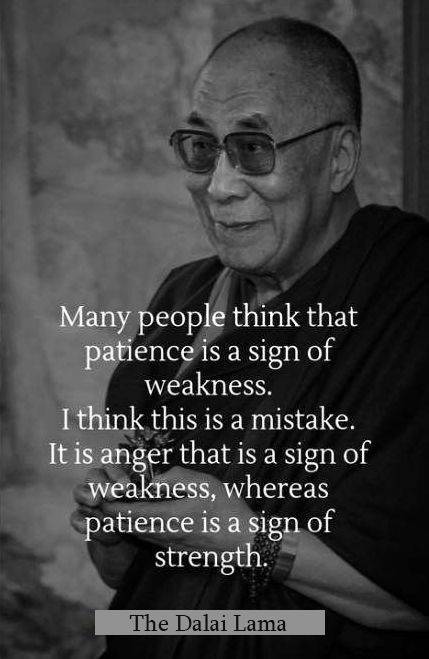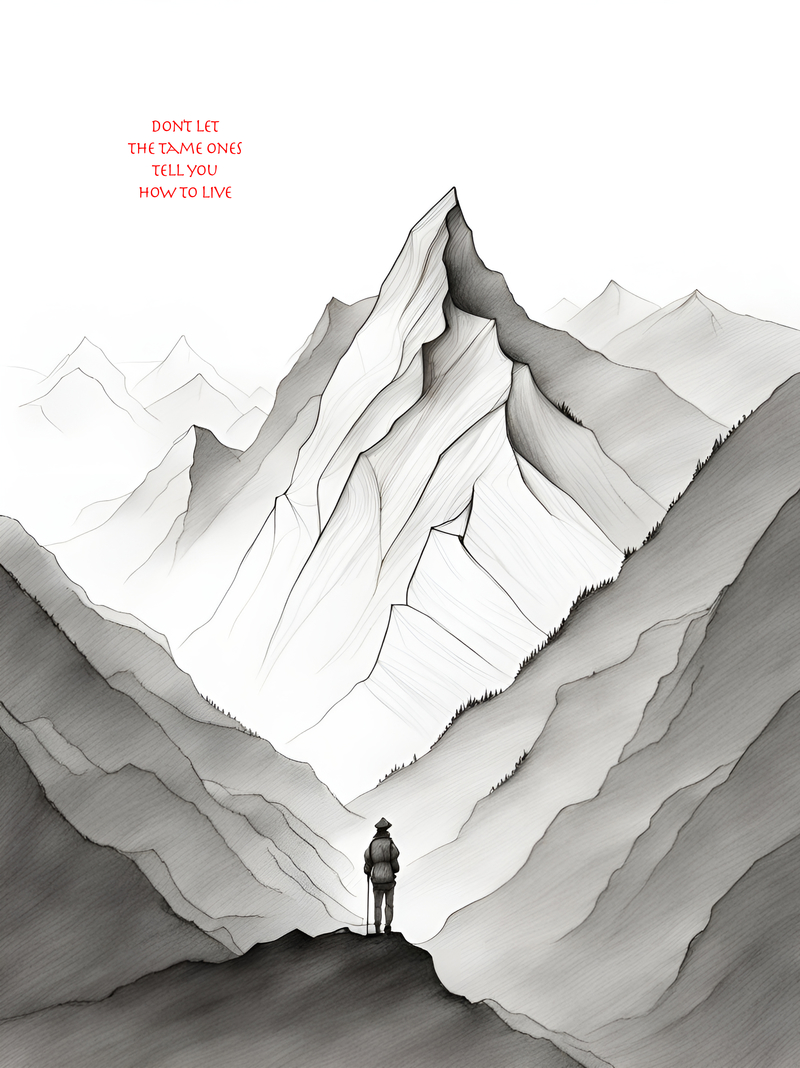“Many people think that patience is a sign of weakness. I think this is a mistake. It is anger that is a sign of weakness, whereas patience is a sign of strength.”
The Dalai Lama
Beyond the Quote (279/365)
Patience is a sign of a strong, well controlled inner emotional climate. A climate that can be maintained independently of what’s happening on the outside. A climate that can be controlled, manipulated, and adjusted only by the person themself. A climate that nobody else can control, manipulate, or adjust even if they wanted or tried to. It is a sign of strength, self-understanding, and balance. But how to get there?
Your inner emotional climate should be like a climate controlled house. With a thermostat, a heating system, and a cooling system in place, outside weather changes don’t affect the “weather” inside of the house. If 70 degrees is your preferred temperature, then that’s where it will stay regardless of what’s happening outside the walls of the home.
It could be blizzard-ing and below 0 degrees—and your house would stay 70. It could be blazing hot and humid—and your house would stay 70. It could be raining, hailing, snowing, storming, freezing, scorching, whatever—and your house would stay 70. A person with patience is a person who has the climate of their house under such control.
A person whose emotional climate is easily influenced by surrounding “weather” (circumstances) is living in a house that doesn’t have such climate controlling capabilities. When it’s blizzard-ing and below 0 degrees, their house temperature drops in accordance and creeps closer and closer towards 0. When it’s blazing hot and 100% humid, their house temperature rises up. There is no independence between what’s outside and what’s inside. This is not a sign of a strong house—it’s a sign of a weak house.
To be clear, this isn’t an argument to be unemotional. The point isn’t to pretend to be calm, cool, and collected if you’re in tough emotional situations. The key is become more in tuned with, to spend more time on, and to work to refine and improve your own emotional heating and cooling systems so that you can actually be calm, cool, and collected without pretending.
Your emotional heating systems would be the strategies and tactics you would use to, well, heat yourself up. When you’re feeling emotionally low, cold, short, stiff, rigid, depressed, frozen—what do you do? Do you let yourself freeze up? Or do you know how to warm your heart back up to people and forgive? Do you know how to turn that “cold shoulder” back around and confront the person who angered you? Do you know how to melt those frozen emotions and express to others how you really feel?
Your emotional cooling systems would be the strategies and tactics you would use to, you guessed it, cool yourself down. When you’re feeling emotionally heated, angry, frustrated, pissed off, anxious, overwhelmed—what do you do? Do you let yourself explode? Or do you know how to let off steam and reduce the pressure that’s built up inside. Do you know how to properly express pressure as it comes so that it doesn’t build up in the first place? Do you have an outlet? Someone to talk to, a place to go, a group to vibe with, a spot to take a break, a notebook to write in, an app to open up?
Having heating and cooling systems in place is the key to emotional balance. And what’s cool (and hot) about getting these systems established inside of your “emotional house,” is that they may become “smart” systems that start to work on their own. Like any other new system, at first, it will be very conscious, calculated, and clunky. But, once you get into a rhythm with it? It becomes unconscious, quick, and smooth. This is the ultimate. This is what you see when you see someone perfectly calm in the middle of, what should be, an emotional storm. This is freedom from manipulation. This is patience in its raw form. This is strength—definitely not weakness.
Read Next: 15 Deep Dalai Lama Quotes From The Art Of Happiness on Happiness, Suffering, and Purpose in Life

NEW In The Shop: Don’t Let The Tame Ones Tell You How To Live [Poster]
Why We ♥ It: Some of the best advice I (Matt here) ever got was: don’t take life advice from people who aren’t living a life you want to live and don’t take criticism from people you wouldn’t go to for advice. I created this poster to act as a reminder to listen more closely to our role models and less closely to our critics, trolls, and tamed-comfort-zone-hugger acquaintances. It’s also a perfect gift for the outdoor adventurer, travel enthusiast, or solo explorer (or soon to be). Available in print or digital download. 👇🏼
...Want to advertise your book, product, or service? Send inquiries to matt@movemequotes.com.

Written by Matt Hogan
Founder of MoveMe Quotes. On a mission to help busy people do inner work—for better mental health; for healing; for personal growth. Find me on Twitter / IG / Medium. I also share daily insights here. 🌱
It has taken me 1,000’s of hours to build this free library for you. If it has helped you, you can support my continued effort here. ☕️
